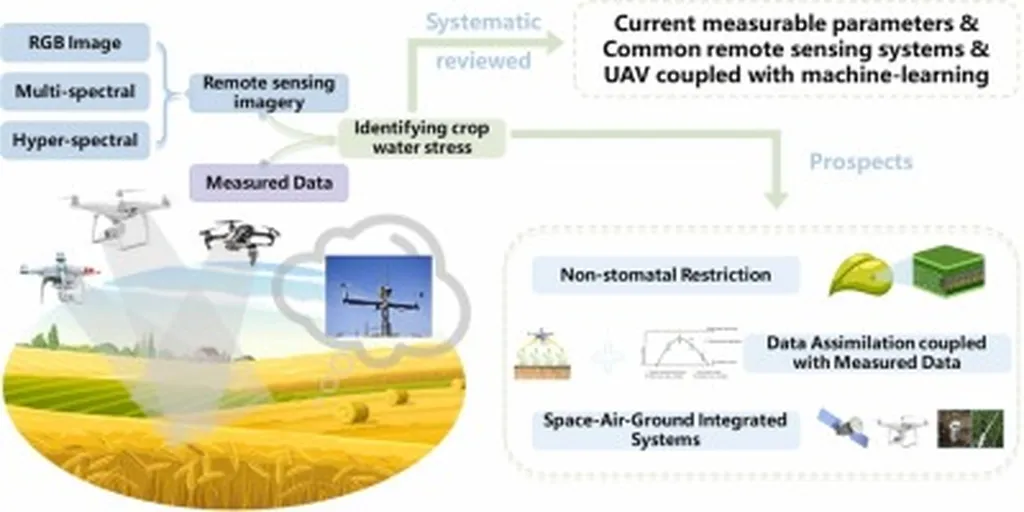In the heart of smallholder farming systems, where data is scarce and irrigation infrastructure is often lacking, a groundbreaking study is paving the way for improved resilience and productivity. The research, led by Helen Snethemba Ndlovu, a corresponding author, focuses on taro, a neglected and underutilized crop with significant potential to enhance food security and diversify cropping systems. The study, published in the journal ‘Smart Agricultural Technology’ (which translates to ‘Intelligent Agricultural Technology’), introduces a novel framework that could revolutionize how we monitor and manage water stress in crops.
Taro, often overlooked in favor of more mainstream crops, is gaining attention for its resilience to climate change impacts. However, its productivity can be significantly reduced by water deficits, which induce physiological responses such as increased leaf temperature and reduced stomatal conductance. These responses vary with growth stages, making it challenging to monitor and manage water stress effectively.
Ndlovu and her team addressed this challenge by leveraging advances in thermal remote sensing technologies and unmanned aerial vehicles (UAVs). Their study presents a multi-temporal framework that integrates UAV-acquired thermal and multispectral sensing with a deep neural network algorithm. This innovative approach enables non-invasive, high-resolution monitoring of crop water status throughout the growing season.
“The vegetative stage exhibited the highest prediction accuracies for stomatal conductance and leaf temperature,” Ndlovu explained. “This suggests that our method could be particularly valuable during this critical growth phase, allowing farmers to make informed decisions about irrigation and other management practices.”
The implications of this research are far-reaching. By providing a scalable solution for high-throughput water-stress monitoring in under-researched crops, the study opens up new possibilities for sustainable agriculture in resource-limited systems. This could not only enhance food security but also contribute to the diversification of cropping systems, reducing the reliance on a limited number of staple crops.
Moreover, the study’s focus on taro, a crop that has been largely overlooked by researchers, highlights the potential of neglected and underutilized species to contribute to food security and climate resilience. As Ndlovu noted, “Our findings underscore the importance of investing in research on these often-overlooked crops. They could hold the key to more resilient and sustainable farming systems in the face of climate change.”
The research also has significant implications for the energy sector. By improving the efficiency of water use in agriculture, the study’s findings could contribute to the reduction of energy consumption in irrigation, a major energy-intensive process in farming. This could not only lower the carbon footprint of agriculture but also reduce the sector’s vulnerability to energy price fluctuations.
As we look to the future, the study’s innovative framework could be adapted and applied to a wide range of crops and farming systems. By providing a powerful tool for monitoring and managing water stress, it could play a crucial role in shaping the future of sustainable agriculture.
In the words of Ndlovu, “This is just the beginning. We hope that our work will inspire further research and innovation in this field, ultimately contributing to a more resilient and sustainable future for smallholder farming systems.”

